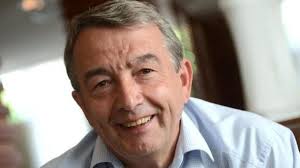By Mark Baber
June 11 – In an open letter, sent to the 26,000 clubs organised in the German Football Association (DFB) and published on the DFB web site, DFB president Wolfgang Niersbach has put forward a 10-point plan for FIFA reform. With the battle for control of football about to enter a critical phase, Niersbach suggests ending the current system of one member one vote in FIFA decision-making.
Niersbach begins by indicating what he regards as the severity of the FIFA crisis: “Arrests, allegations of corruption, investigations – international football is in its most severe crisis. Everything that makes up our wonderful game, is at stake.”
The solution, according to the head of German football is “more control, more transparency. You need reliability, seriousness and liability.” Unfortunately, “Even the largest association of FIFA has only one vote, which will not be heard in every part of the world. But we see it as our task to raise our voice. The DFB and I as its president take the challenge to take on in these times for the association, for each member, for our soccer responsibility. We want reforms, we want to change. And we will demand it.”
Niersbach then outlines his 10-point plan which includes swift change at the top of FIFA, detecting and punishment of corruption including co-operation with the investigating authorities, establishing “integrity checks” for members of the FIFA Executive Committee, election of Executive Committee members by the Congress rather than Confederations, a term limit of 12 years for the FIFA president, transparency in World Cup awards, respect for human rights, tighter control of cash flows, adjustment of the voting system and the drawing up of a reform agenda.
Of course the devil lies in the detail of the proposals and some of Niersbach’s suggestions are likely to prove highly controversial.
With regards transparency in World Cup awards Niersbach suggests: “For future awards a transparent procedure has to be developed that closely followed the technical evaluation and is thus understandable.” If this approach had been adopted, according to Niersbach, Qatar’s application for 2022 would not even have come to the vote.
On human rights Niersbach suggests: “Freedom of expression, press freedom, the protection of minorities, tolerance, respect – these are values that have to apply at any time and during a World Cup for all participants.”
Niersbach suggests “upholding workers’ rights and safety standards by the candidate country must be taken into account in the process of tendering and apply for the upcoming award the 2026 World Cup.” He also says: “Regardless, it remains the task of football, to press for the observance of human rights in the already awarded tournaments.” However, Niersbach avoids the issue of any boycott of the 2022 games in Qatar.
On adjustment of the voting system, Niersbach says: “It should be examined whether the current system of “one country, one vote” in the dialogue between all 209 member associations of FIFA may be adapted and developed. In principle, I stand for this form of democratic participation, but also a certain amount of weighted voting based on the size and the relevance of the sporting associations I consider effective.”
Interestingly, Niersbach is keen to dispel the questions over the DFB’s World Cup bid, stressing that the process of winning the right to host the 2006 World Cup was a “clean process.”
Whilst many smaller and poorer countries will see in elements of Niersbach’s proposals an arrogance and anti-democratic spirit, Niersbach claims that his plan is advanced “in the hope that it will find the necessary alliances and often difficult to be bundled majorities.”
Contact the writer of this story at moc.l1751417319labto1751417319ofdlr1751417319owedi1751417319sni@r1751417319ebab.1751417319kram1751417319

